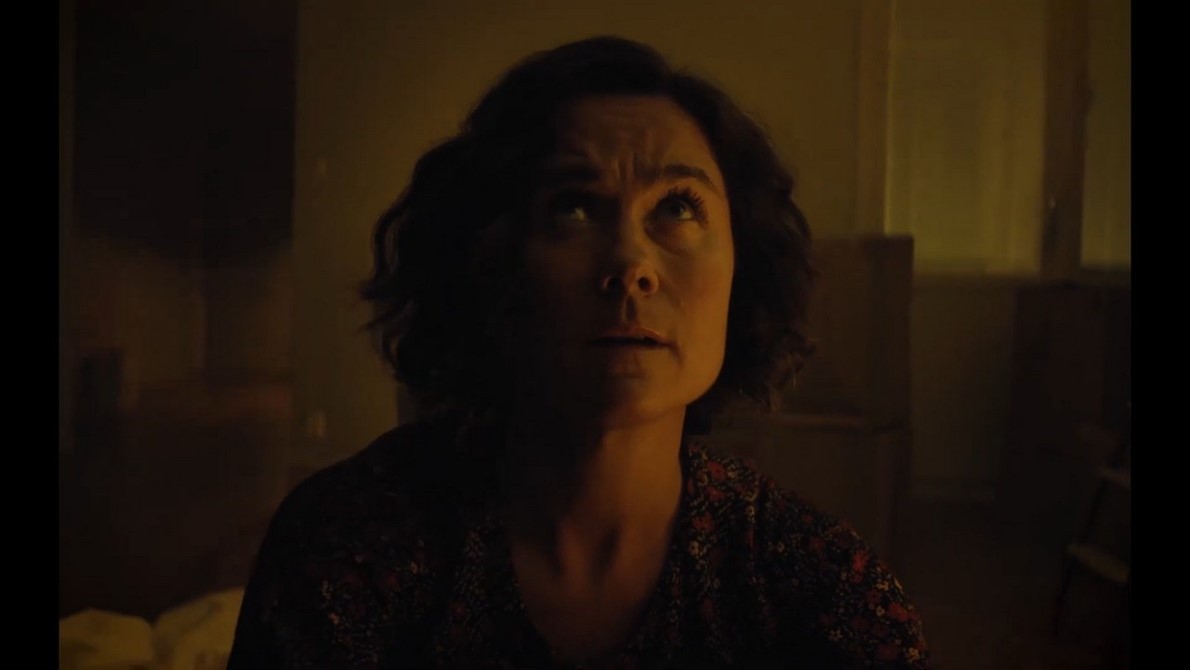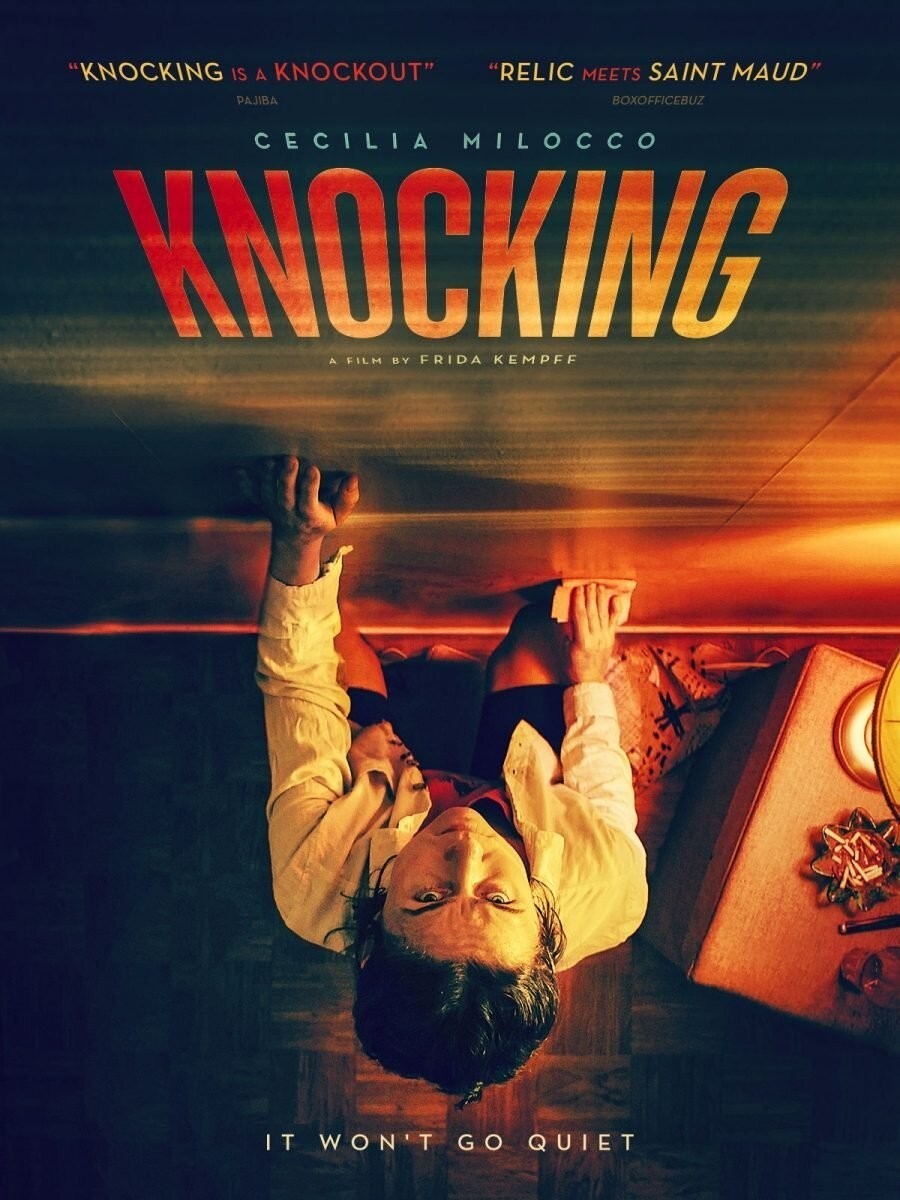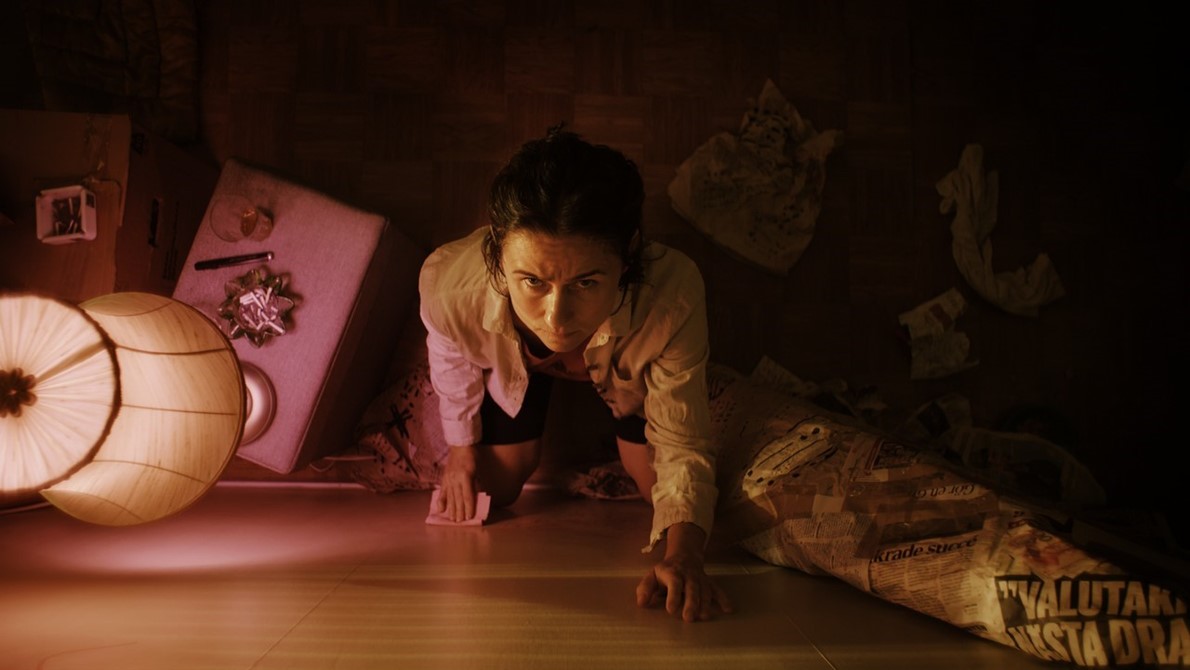The uproar from the neighbors in “Knocking” is cause for concern. Or is it rather
the new tenant who is not well? When Molly (Cecilia Milocco) is released from a
mental institution and tries to rebuild her life, knocks are heard at all hours
of the day or night in her ceiling. A stain also seems to be spreading quietly.
اضافة اعلان
In this dark film, which screened as part of the
international section of
Amman Film Festival, the protagonist, Molly, is given
the opportunity to leave the closed psychiatric facility and start a new life
in a small apartment. But on her first night, a mysterious knock keeps her
awake. The neighbors claim neither to have heard nor to know about this
background noise. Not even the police believe Molly. So she goes in search of
clues herself and gets deeper and deeper into something from which there will
be no way out.

Because Molly has to suffer a lot in Knocking.
Although her psychological background is never specifically addressed, one
thing becomes clear enough. Events in her past meant that she was under
in-patient psychiatric care for a long time and is currently dependent on
taking medication. With this stigmatization, she does not appear credible to
neighbors or the police.
Particularly depressing
As a viewer, you experience the events consistently from Molly’s point
of view. The actual story arc is very minimalistic. She is either afflicted by
knocking or screaming in her sparsely furnished apartment or is in the house
looking for the origin of what is happening. Through some seeming flashbacks, a
carrot dangles in front of the viewer’s nose every now and then, which spurs
him on to track down the reasons for Molly condition. But in the end there is
little classic suspense.

It is the dimly lit apartment, Molly’s increasingly
desperate search, and her completely overwhelmed environment that leads to
unease among the audience.
The sufferers
Since Knocking presents itself more as a chamber play-like
psychodrama, its minimalism stands and falls with its actors. Milocco plays the
mentally unstable Molly outstandingly. Thankfully, the screenplay does not
tailor her script to an exaggerated clichéd psycho aunt, but gives her plenty
of room for the realistic portrayal of a suffering person whose initial
skepticism keeps spreading and ultimately dominates all her actions and
thoughts.
In one scene, returning home after a frustrating
experience, she sits in her apartment crying. One wishes that this crying
represents her realization that she cannot free herself from this whirlpool
without external help. But the pull is too powerful for her, emaciated from her
struggle, to resist.

In addition to the strong performance, there are
also various techniques with camera angles or lenses that give Molly’s anxiety
visual expression. Either a wide-angle lens provides slightly distorted and
unreal shots or a camera rig attached to Milocco captures every facial
expression when she completely succumbs to her psychosis; images are
guaranteed.
Knocking is as oppressive as it is tragic. A psychosis is
filmed in a surprisingly sensitive and realistic way, which is mainly due to
the brilliant leading actress. However, you have to be able to get involved with
the very minimalist arc of suspense and should not expect a classic horror or
psychological thriller.
Read more Reviews
Jordan News



